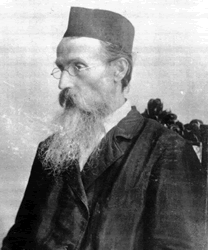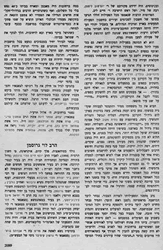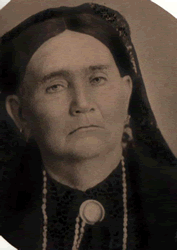#grdsky-1:
#grdsky-2:
#grdsky-3:
#grdsky-4:
#grdsky-5:
#grdsky-6:
#grdsky-7:
Yizhak Yosef Gorodesky
The eldest son of Chava Risha and of Shmuel Gorodiskyi, was born in 1864 in Mir, Belarus
He married Sarah Zelda, Children;: Yom Tov, Ben Zion, Benayahu, Tzvi, Yehuda , Peretz , Menachem,Yehoshua, Sharia, Ezra
Immigrated to Israel in 1896, already a family member. Purchased land in Rehovot and devoted himself to agriculture. Was a public figure, a member of the village committee.
He died on the 11th of Tammuz 5712 (26.6.1912).
Meir Gorodisky
The son of Chava Risha and Shmuel Gorodiski was born in Mir, in Belarus, in 1883. He immigrated to Eretz Israel with his father in 1889 and began studying at Neve Tzedek in Jaffa. Afterward he studied at the elementary school in Rehovot and received additional lessons in Talmud and Judaism. He founded the school library, which he donated from his books and money. From the age of 14, he began planting. Worked as an employee for a " rest and Farm " and " Society Strawberry " and was a good and diligent worker. In addition, he also worked in his parents' farm. At the time of the Great Depression, when he was 17 years old, he traveled to South Africa. He stayed there for about ten years and worked as a farm manager. Helped financially immigrants from Palestine to establish their businesses there. He dealt with Zionism and marketing Israel's oranges without any profits for himself. Afterward, he returned to Rehovoth, and in 1911 married Ruchama, daughter of Nahum Horowitz, who was born to Isaac,Children; Raya, Shmuel and Nahum.
He successfully worked in planting grapes, almonds and citrus. He also devoted his time to public service. He worked with the officials of the Turkish government and then the Englishman for the benefit of the colony. For many years he worked for the committee and was active in all the public institutions. During the First World War, when an order was issued permitting only the owners of plots of at least 20 dunams of land to remain in the area, together with other functionaries he managed to register ownership certificates for all the Jews, thus saving them from deportation. Due to his efforts with the British authorities after the First World War, a train station was set up in Rehovot. He also worked hard to open a post office in the colony. During the British rule, he worked very hard to rescue people who had been arrested and hid weapons in his home for the Haganah. He donated his land for public construction in the village. For many years he was an active member of the Agricultural Committee And arbitrator in wage disputes, a magistrate in the local magistrates court, a single arbitrator in financial disputes. He was a member of the administration of the Agricultural Loan Fund for many years and worked diligently on its growth and strengthening. He worked hard to help Jews who wanted to immigrate to Israel by giving them employment certificates, as required by immigration laws. Helped in the redemption of many lands for the expansion of the colony and the establishment of new settlements in the south.
He died in 1955.
Zvi Gorodisky
the son of Sarah Zelda and Yitzhak Yosef GorodiskyBorn in Mir, White Russia, in 1890. His father wanted him to be a rabbi and sent him to Jerusalem to study in a yeshiva, but he did not like the studies there and he fled. All his life he was a farmer. He worked mainly in fields, vineyards, almonds, and especially he specialized in orchards. He was a council member from 1938 to 1944. He married Rachel and nee Levinstein of Lithuania.
For the full family tree Go to MyHaritage
http://www.rehovot-archive.org.il/Doc.asp?MenuID=968&Dy
Shmuel Gorodesky
Shmuel was born in Mir, Minsk ( Belarus), in 1835, to his father, Rabbi Ze'ev Peretz (one of the lecturers at Yeshivat
Mir, one of the greatest opponents of Hasidism; Son of Rabbi Baruch , a student of the Vilna Ga'on), and his mother, Rachel. He learned Torah from his father and at the Mir yeshiva, married Chava Risha,daughter of Reb Aryeh Leib Zitz (worked as a clerk in the business of one of the richest men of Mir).
He continued to set aside time for the Torah and to give classes in the Talmud in the evenings and on Saturdays. He devoted himself to the needs of the public, and in particular devoted himself to the activities of Hovevei Zion and was one of the leaders of the local branch. Invented original methods to multiply
The proceeds of Hovevei Tzion's lottery (by lottery of government securities, the sale of Eretz Israel souvenirs). His children were educated in the mitzva of Yeshuv, and he would employ them to carry the lulav on Sukkot to the homes of its owners and partners and to distribute Hebrew newspapers, He managed an exchange of letters with the heads of the High Court of Justice in Odessa, and participated as the branch's delegate in conferences
And conferences. Was a close friend of Rabbi Yom Tov Lipman, rabbi of Mir, and of the Rosh Yeshiva, Rabbi Chaim Leib.
The many pennies collected from all these activities eventually came to the smallest sums in the practical operation of the country and its great needs, but for the Jews of the town, the amateur-Zionist activity was a social cement that united peace and friendship and gave them the satisfaction of acting for a higher cause.
He was not satisfied with this local activity. On his travels to commercialize his big business, he also made a living and collected money for Hovevei Tzion and decided to pursue practical realization.
In 1929 he immigrated to Israel with his son, Meir, and spent nearly two years in Neve Tzedek, Jaffa, with the other two streets ( Dondikov, Goldin, Harlap, etc.).Purchased an estate in Rehovot, got on the land among the first in the city of Taran and built his home. (He also invested money in other factories for the redemption of land: in Hadera, in the Minneapolis Elf Association - and a thousand dunams in Horan, but in those businesses he only invested money without receiving the land). We will call the streets "Mirer" after the city of origin.
He brought his whole family into the kitchen and devoted himself to hard work in his farm. He planted a vineyard and worked in the field. He made attempts to acclimate the soil crops from Russia, succeeded and failed and succeeded and continued. Tried, in partnership with Batya Makov, to grow sweet peas of the "Victoria" variety, the first in Israel, and succeeded, and since then, this has been growing in our country. There was little success in Shifun. In oats he was more successful, trying to grow stomachs, but at that time there was not enough water to irrigate them. He was almost the first to lead a truly mixed farm: vines, almonds, olives, cowshed and chicken, vegetables, and in every industry he made experiments and sought ways of refinement and sometimes even achieved important achievements (one tomato bush reached a peak of more than 700 fruits). He also tried to grow castor bean. The experiments also brought him considerable losses, but they did not deter him from continuing. He tried to provide the needs of his own home as much as possible and demanded of himself and his household, except as much as possible, the use of foreign produce, since at that time he saw it as a guarantee to establish the Yishuv's economy so that he could grow and develop with strength and accustomed his sons and daughters to manual labor.
Nadav of his time and his activities in public service, was elected to the committee of the colony from its inception (deputy head of the committee) and was always re-elected to the committee, the school committee and the school supervisor. He established a kitchen for the first workers and instituted a mandatory order that every employer with an estate would once - once a week - work with the workers in their kitchen to cultivate brotherhood and equality. His house was open and his table was set up for the guests, their people and common folk in the streets as before in Mir, and for his wife it was never difficult to prepare enough even when the guests were numerous (during the "holidays"
Pesach in Rehovot was hosting at his home 40 people without payment), and even when the many experiments in new agricultural crops increased his losses did not reduce this expense.During the period of his strong economic status, he issued money-parchment notes that were received in the moshava as money being traded.
When Herzl visited Israel and came to the Rehovot, he went to visit Rabbi Shmuel at his home.
He was elected as the sole arbitrator in disputes in almost all of Judea. He exchanged letters with the leaders of the Hibbat Zion movement in Odessa and with Herzl. He wrote articles in "HaKneset" and "Ha'asif", and many of his articles - his logic - remained in the scriptures. He had a friendship with Rabbi R 'Hacohen Kook in Jaffa, with Rabbi Pines and others. Gave Torah lessons to an audience in the synagogue and led the recitation of Kaddish after the death of Herzl. Stood guard over Israeli tradition and purity in public life and in the moshavah in general, but without zealotry. Throughout his life, he bore his grief over the death of his son Isaac in his youth.
At the age of 70, he divided all his possessions into his offspring and continued to study Torah and public needs. Before his death he asked his sons to honor the names of the three great men in the building of the nation and the land: Dr. Herzl, Baron Rothschild and Eliezer Ben-Yehuda , because in his opinion the three of them "bought their world " by their deeds.
He died in Rehovot, the fifth of Elul 5616. His descendants: Yitzchak, Esther Dina, wife of Rabbi Shimon Green Bero, Sarah, wife of Noah Handelsman, Yenta z "l, Rachel , wife of Shmuel Haim Cohen, Peretz, Chaim, Yehuda, Meir ( In this volume), Shlomit, the wife of Matityahu Spokoiny.
Picture of Shmuel's wife Chava Risha


